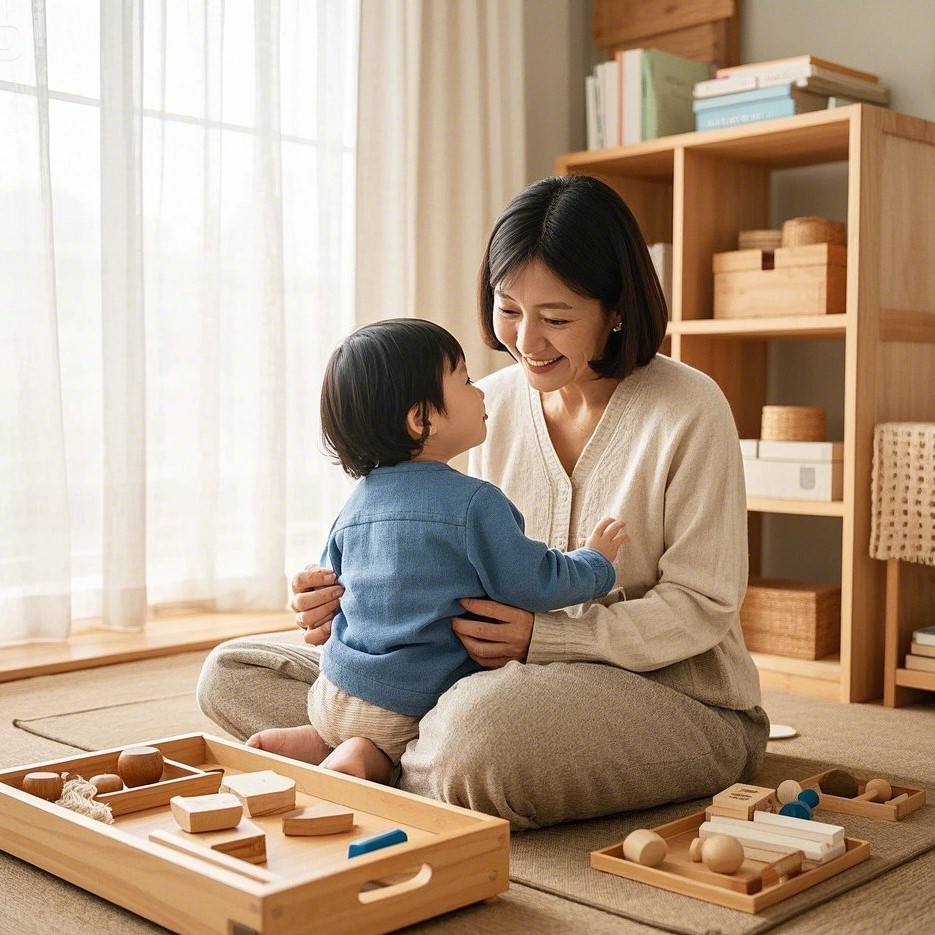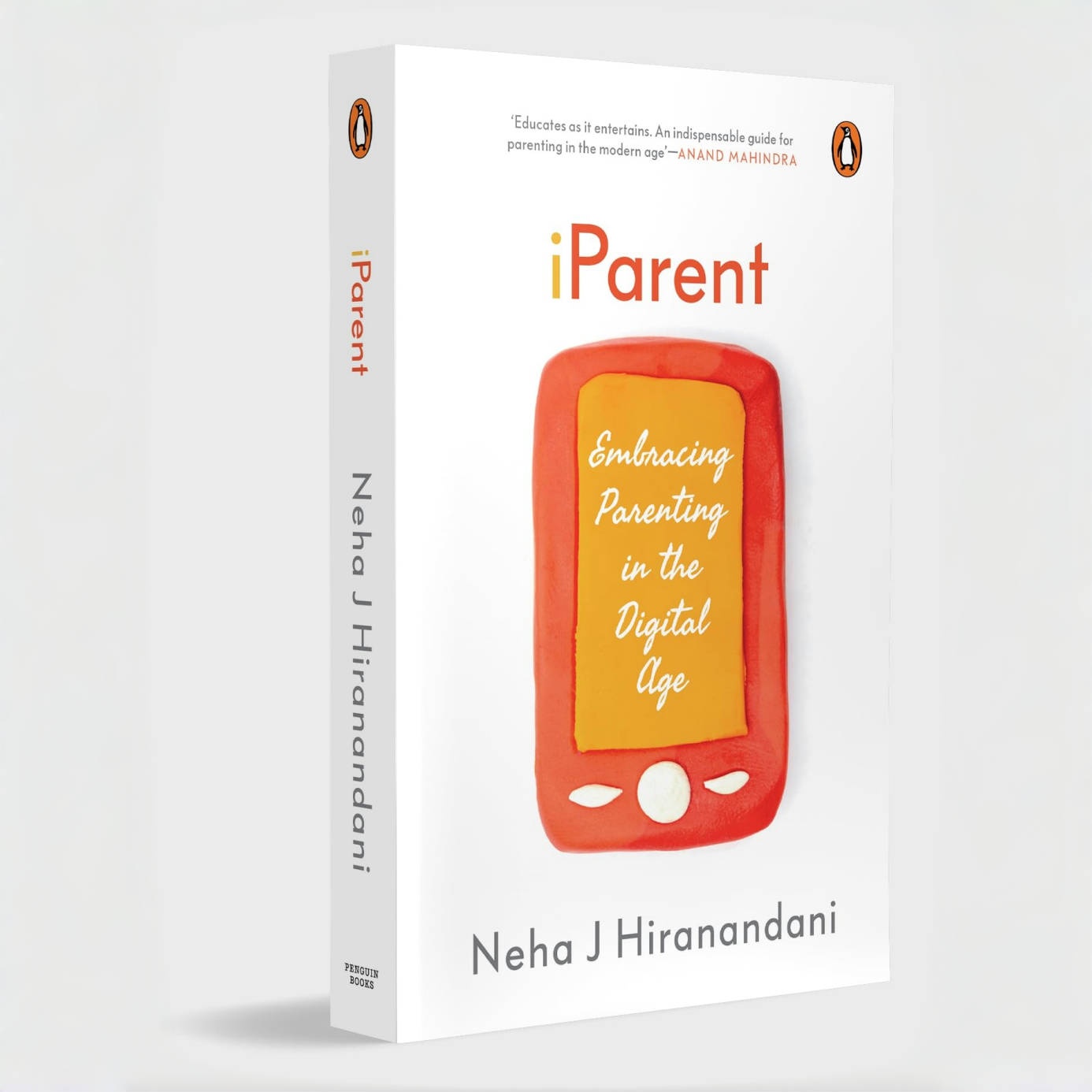Raising a child can be overwhelming, especially when you’re trying to balance love, discipline, and education. Many parents are turning to Montessori parenting for guidance—a time-tested approach rooted in respect, independence, and natural learning. Based on the educational philosophy of Dr. Maria Montessori, this method can revolutionize the way you connect with your child and support their developmental growth.
Here are seven powerful Montessori parenting principles that will transform your parenting style and help raise a confident, capable, and compassionate child.
1. Respect the Child
At the heart of Montessori parenting is a deep respect for the child as an individual. This principle encourages parents to treat their children not as extensions of themselves, but as unique human beings with their own thoughts, feelings, and needs.
Respecting your child means listening to them attentively, acknowledging their emotions, and validating their experiences—even when they’re upset or having a tantrum. It’s about avoiding dismissive phrases like “You’re fine” or “Stop crying,” and instead saying, “I see you’re upset. I’m here to help.”
This approach fosters emotional intelligence, builds trust, and lays the foundation for a secure parent-child relationship.
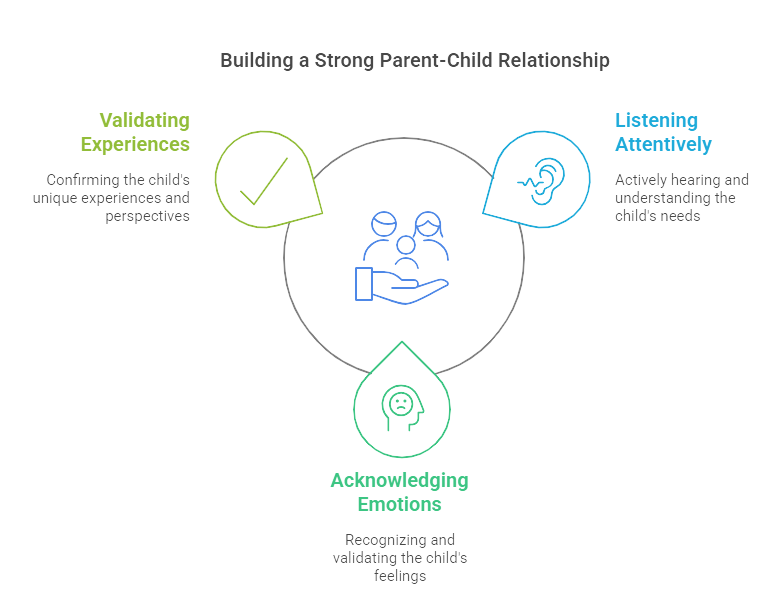
2. Foster Independence
A cornerstone of Montessori philosophy is the belief that children are naturally driven to become independent. From a very young age, children want to do things on their own. As parents, our job is to nurture that drive.
Encourage your child to take on age-appropriate tasks like dressing themselves, preparing snacks, or putting away toys. Set up your home to support this independence with child-sized furniture, step stools, and accessible storage.
It might take longer and be messier, but allowing your child to try (and fail) helps them build self-confidence, problem-solving skills, and resilience. As Montessori said, “Never help a child with a task at which he feels he can succeed.”
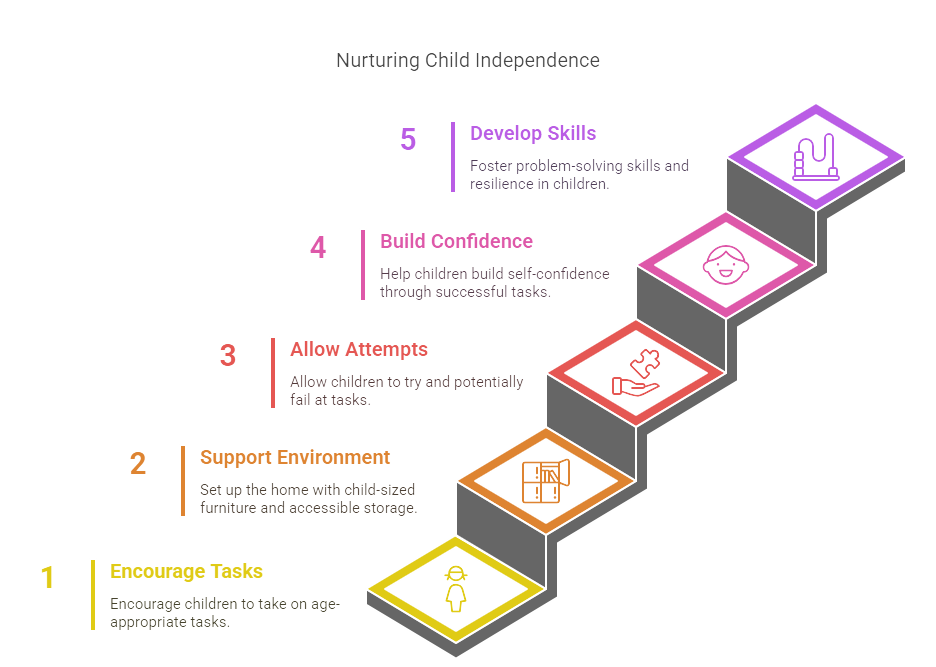
3. Create a Prepared Environment
The environment is often called the “third teacher” in Montessori education. A prepared environment is thoughtfully arranged to promote exploration, concentration, and independence. In a Montessori home, everything has a place, and children can access materials they need without relying on adults.
Minimize clutter and choose toys that are open-ended and aligned with your child’s developmental stage. Rotate toys regularly to keep the space fresh and engaging. Organize shelves at your child’s eye level and use baskets or trays to group items.
A calm and orderly space helps your child feel grounded, focused, and in control—key elements for healthy child development.
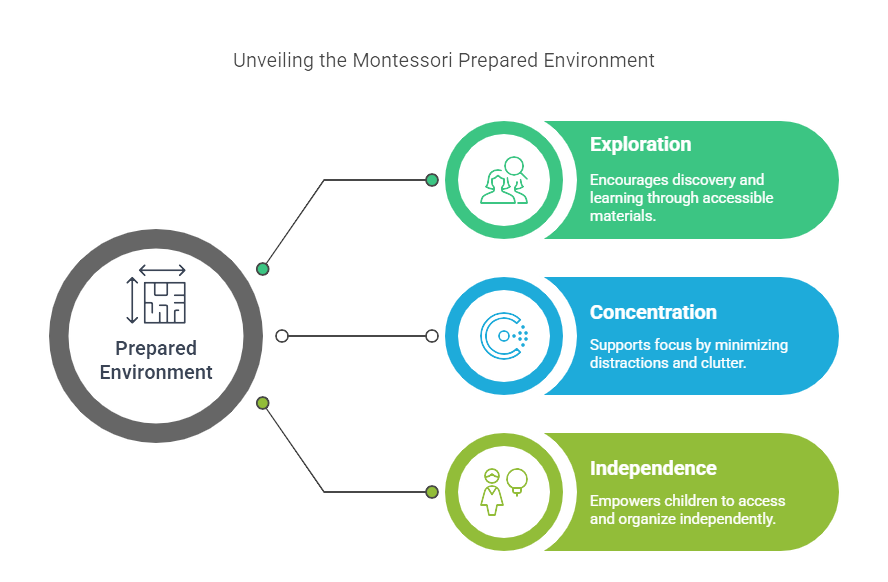
4. Follow the Child
One of the most powerful Montessori parenting principles is learning to “follow the child.” This means observing your child closely to understand their interests, needs, and natural rhythms—and then supporting those cues rather than imposing your own agenda.
If your child is fascinated by bugs, get books on insects, take nature walks, and provide a magnifying glass. If they love water play, offer safe water-based activities that let them explore that curiosity.
By following the child, you encourage self-directed learning, foster intrinsic motivation, and create a more peaceful parenting dynamic. It’s less about controlling and more about connecting.
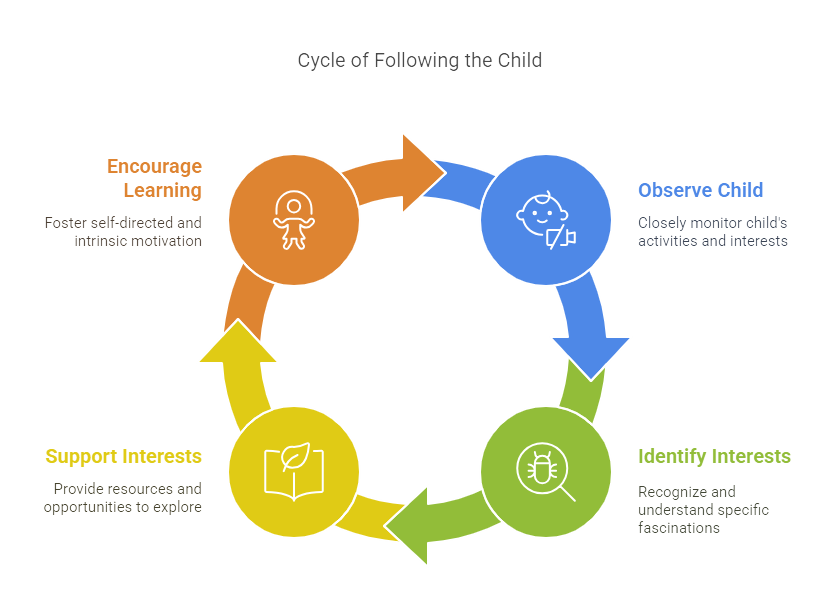
5. Encourage Concentration and Deep Engagement
Modern life is full of distractions, but Montessori parenting values uninterrupted time for deep focus. When a child is fully engaged in an activity—whether it’s stacking blocks, coloring, or watering plants—they’re not just playing; they’re learning how to think critically and persist through challenges.
Avoid interrupting your child when they are focused. Instead, give them the time and space to finish what they’re doing. This builds their attention span, promotes autonomy, and nurtures their ability to engage in purposeful work—an essential life skill.
Additionally, don’t feel pressured to entertain your child constantly. Montessori encourages us to trust that children are capable of entertaining themselves when given the right tools and freedom.
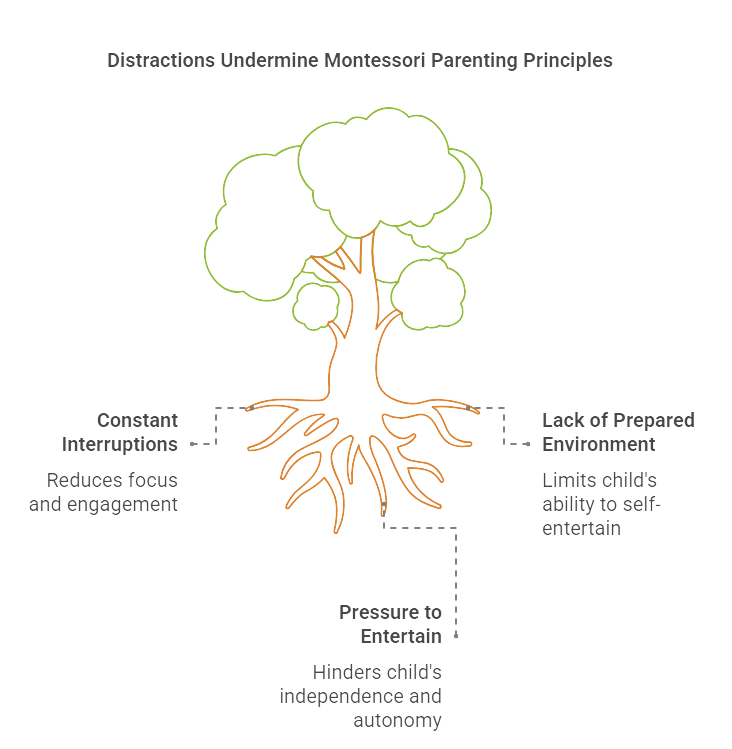
6. Teach by Modeling, Not Controlling
Children learn more from what we do than what we say. In Montessori parenting, modeling behavior is more effective than commanding or punishing.
If you want your child to be polite, use respectful language in your everyday interactions. If you want them to clean up, involve them in your cleaning routines and show them how to do it with joy and pride.
Rather than using rewards or punishments, focus on natural consequences and gentle guidance. For example, if a child spills juice, instead of scolding, invite them to clean it up with you. This approach teaches responsibility in a calm, connected way.
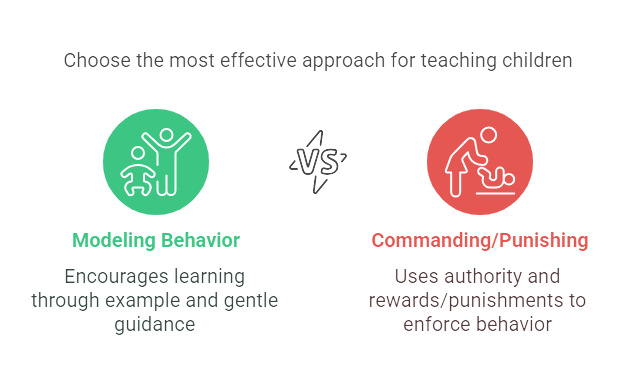
7. Promote Intrinsic Motivation
Unlike traditional parenting methods that rely on gold stars and praise, Montessori parenting focuses on developing a child’s intrinsic motivation—their internal desire to do things because they find them meaningful or enjoyable.
This means shifting from saying “Good job!” for every action, to more thoughtful reflections like, “You really worked hard on that puzzle,” or “How do you feel about your drawing?” These comments help children evaluate their own efforts and build self-esteem that isn’t dependent on external validation.
By encouraging intrinsic motivation, you’re helping your child develop a lifelong love of learning, a strong work ethic, and confidence in their own abilities.
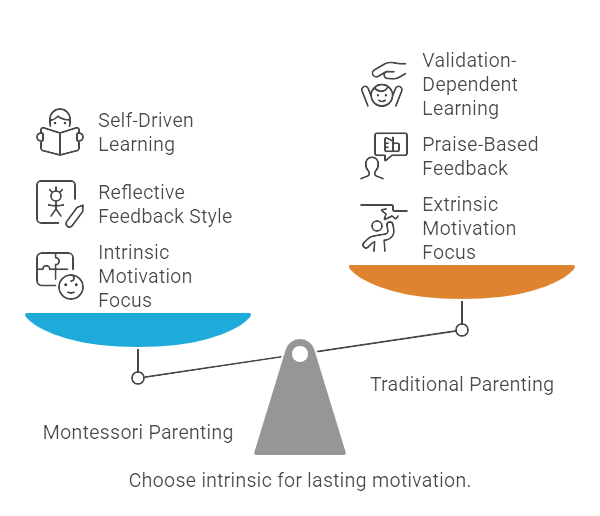
Final Thoughts
Incorporating Montessori parenting principles into your daily life doesn’t require expensive materials or a perfect setup. It’s more about your mindset and your relationship with your child. By respecting your child, encouraging independence, and creating a supportive environment, you’re setting the stage for healthy emotional, social, and intellectual growth.
Here’s a quick recap of the 7 principles:
- Respect the child
- Foster independence
- Create a prepared environment
- Follow the child
- Encourage concentration and deep engagement
- Teach by modeling, not controlling
- Promote intrinsic motivation
Parenting is a journey, not a checklist. Start with one principle, observe the changes, and build from there. With consistency, empathy, and curiosity, Montessori parenting can truly change the way you raise your child—for the better.

